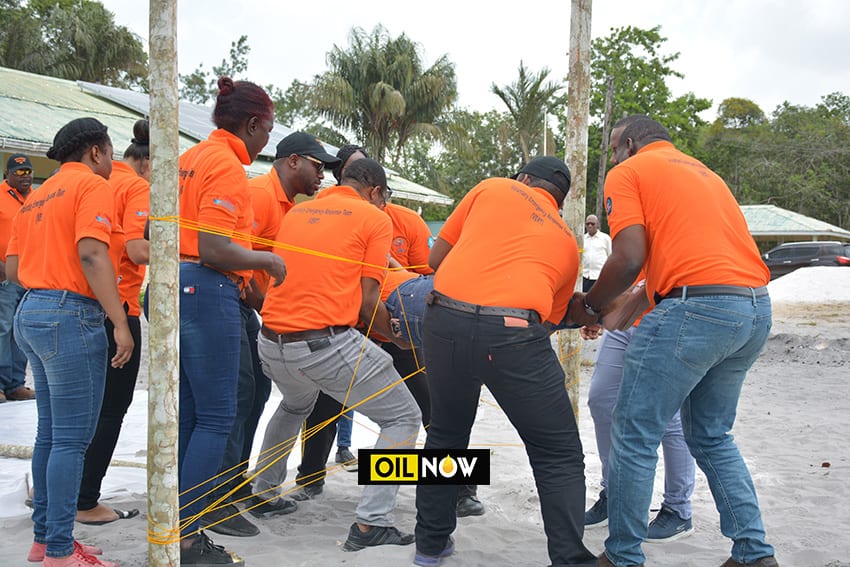Guyana’s Civil Defence Commission has partnered with ExxonMobil Guyana, the Caribbean Disaster Emergency Management Agency (CDEMA), University of Guyana (UG), and the Guyana Defence Force (GDF) to design and implement a comprehensive Voluntary Emergency Response Team (VERT) Programmme in the South American country.
Speaking at the launch of the one-year programme on Sunday at Camp Madewini, Timehri, East Bank Demerara, Director General (ag) of the CDC, Lt. Col Kester Craig said disaster risk management is multi-disciplinary and requires engagement from a wide range of skilled and professional individuals.
With Guyana set to become a major oil producer in the region, efforts have been underway to enhance emergency response mechanisms and build the capacity of key agencies.
Lt. Col Craig said a significant extent of disaster management is driven by people who are willing to volunteer and contribute to the social good in their communities and country. As such, the CDC officially launched its Volunteer Corps back in October 2012.
“It must be noted that volunteers are the most important members of a disaster response team, since they provide critical emergency response services and play a major role in rebuilding livelihoods and strengthening community resilience,” he said.
The CDC head said he is confident that the VERT Programme will be seen as an opportunity for volunteers to develop their skills, test their capabilities and most importantly as a duty to help each other, putting aside cultural, political or religious differences. “I trust that you all remain fully committed to this cause and will give your fullest support,” he told the thirty volunteers.
ExxonMobil Guyana’s Senior Director, Public and Government Affairs, Deedra Moe, in her remarks said, “Volunteer citizens play an important role in accident and disasters, providing assistance for relief organisations such as the Civil Defense Commission in this case.”
Moe stressed the importance of volunteerism both at the community and national level and told those embarking on the training that such involvement is a sign of “tremendous commitment and dedication for this type of work to want to help your communities, your neighbors, your friends, families and strangers.”
Emphasizing the importance of developing a culture of safety, particularly with the advent of the emerging oil and gas industry, Deputy Vice-Chancellor, Academic Engagement, University of Guyana, Professor Michael Scott, said, “Guyana’s vulnerable seacoast, climate change and the imperatives of the impending oil boom and its potential hazards demand a culture of safety and planned responsiveness to emergency volunteers.”
A Memorandum of Understanding (MoU) between the CDC and UG was also signed at the event on Sunday. This will see volunteers who successfully complete the programme being certified by UG in disaster risk management. The MoU was inked by Lt. Col Craig and Professor Scott.



